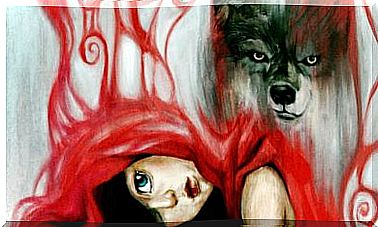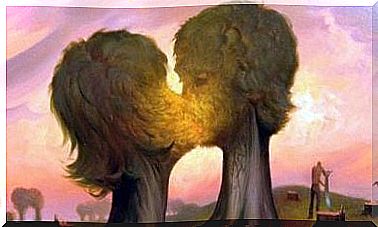3 Roman Legends To Ponder
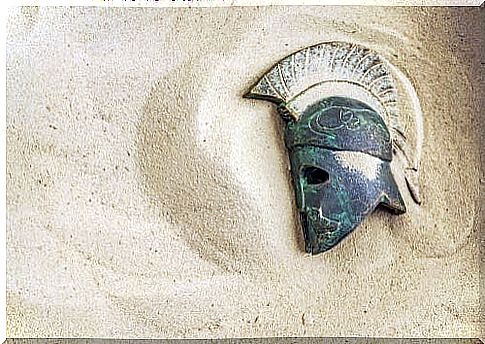
Roman legends have the peculiarity of offering a strange combination of human beings with fantastic natural elements and mythological animals. But they save much more in their content.
The classical legends, mainly the Greco-Roman ones, aimed to offer a feeling of homeland among its inhabitants, promoting enormous feats that served both to understand the origins and history of the empire and to educate the population in the values of their time.
The Roman legends that promote the greatest reflection
In some way, the classical world has endured until today as a cultured and almost exemplary element. Thus, in a similar way to how it happened in its day, a good number of the legends that we know also serve us to reflect.
The truth is that those ancient legends still explain the current world beyond their fabulous stories. It is due to their broad cultural and symbolic content, hence they are used daily by psychologists and professionals from various disciplines to exemplify the world in which we live.
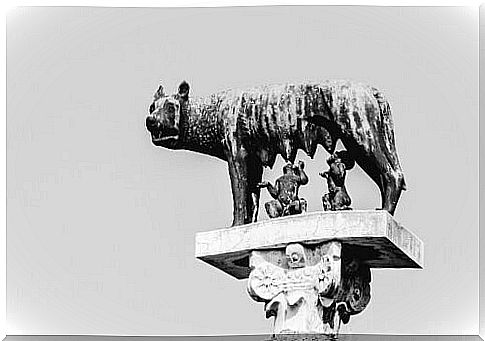
The she-wolf that suckled Romulus and Remus, founders of Rome
With the intention of giving an almost divine origin to mighty Rome, the legend was created that, temporarily, it was a she-wolf that suckled Romulus and Remus, the two founders of an empire that would span 10 centuries of human history.
A servant saved the twins from being murdered and hid them on the banks of the Tiber River to be picked up by a she-wolf who suckled them when she heard them cry. Later, it would be the shepherd Faustulo who would collect them and raise them together with his wife, Acca Larentia.
The she-wolf was a sacred animal for many cultures, including the Struscans, a people that lived in Italic lands before the Romans. However, from this legend we can extract other reflections. For example, how much our actions can change the world. Who would have told that servant or shepherd that one of the greatest and most powerful empires we have ever known would be born from his acts of kindness?
Circe and King Pico
We now see another interesting Roman legend, that of Circe and King Pico; perhaps less known than the previous one, but no less striking. In it we meet Pico, son of Saturn and father of Fauno, married to the nymph Canente.
Pico was a primitive diviner who was accompanied by a woodpecker, which is also considered a prophetic bird. However, this man did not correspond to Circe, the sorceress of the island of Eea that what she loved. For this reason, the woman also transformed him into a bird with prophetic powers.
It is curious that, in many of the legendary Greco-Roman fables and legends we find a great presence of unrequited love that ended tragically, vindictively or in drama. Today, we increasingly learn to live better with our emotions. It is important to know them, control them as much as possible and, above all, understand them. Otherwise, rage, revenge or anger can be constant, as we observe in many classic stories.
Hercules and Cacus
One of the characters that stars in the most Roman legends is Hercules. So much so that Virgil, probably the greatest Roman poet, narrated his adventures to defeat Cacus, half satyr, half giant. What’s more, this story is represented sculpturally in the Piazza della Signoria, in Florence.
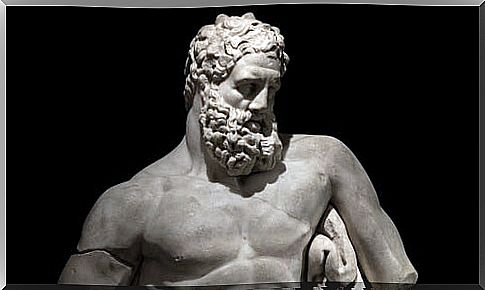
Virgilio dreamed of creating an almost divine Roman origin. Hence, he wrote The Aeneid , in which the adventures of Aeneas, a descendant of Troy, are narrated, a city from which he once escaped falls into Greek hands to found Rome on the Italian shores.
The passage of Hercules and Caco is one more that adds to this divine origin. And the fact is that the giant, after stealing some red oxen in the Tiber Valley, is discovered by Hercules, who dismembers him as revenge.
This story is said to initiate the Hercules cult. Also that it is an anthropological key to know the commercial evolution in the area. However, once again we observe revenge, the victory of the strongest and punishment in the face of morally reprehensible acts.
There is no doubt that Roman legends, always interpreted from a current point of view, allow us to reflect on themes that are equally classic. Morals, ethics, revenge, justice, emotions … For thousands of years we tried to understand them. Will we ever make it?


